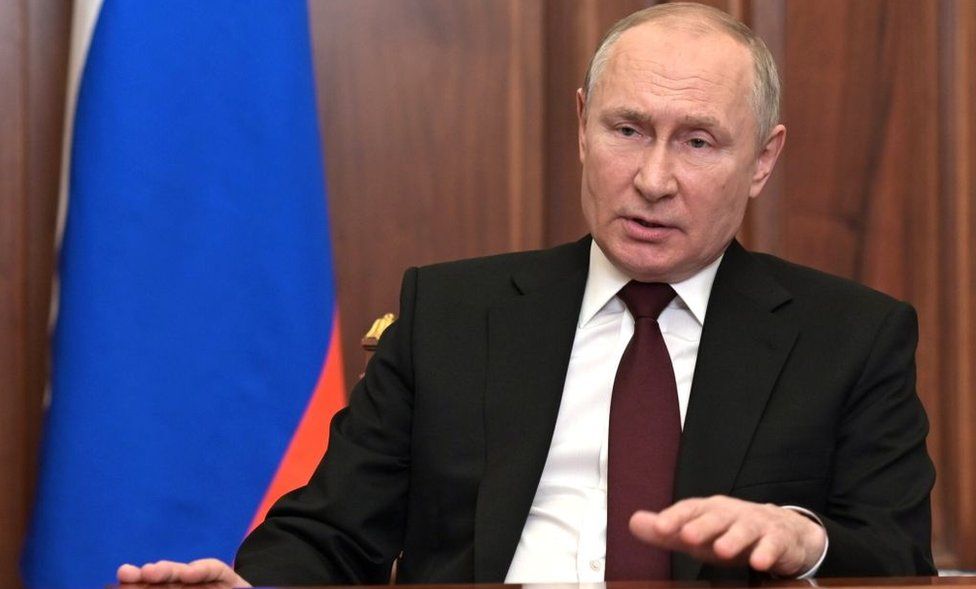Putin Backs Bitcoin’s Future as Russia Advances Crypto Laws and Inflation Control
04.12.2024 18:30 2 min. read Alexander Zdravkov
On December 4, 2024, Russian President Vladimir Putin made headlines with his endorsement of Bitcoin and other digital assets, asserting that these technologies cannot be banned and will inevitably continue to evolve.
His comments followed the recent passage of a new law in Russia, which officially recognized cryptocurrencies as property, marking a significant step in the country’s regulatory approach to digital assets.
Putin’s remarks, delivered during an investment forum in Moscow, were a clear indication of Russia’s growing acceptance of cryptocurrencies. He emphasized that Bitcoin, in particular, is set to remain a part of the global financial landscape. This stance comes amid the ongoing discussions in the U.S. about pro-Bitcoin policies, especially as former President Donald Trump has proposed building a national Bitcoin reserve. Putin’s comments may reflect a desire for Russia to remain competitive in the global crypto space.
In a related move, Russia recently implemented a new taxation law that redefines digital assets as property, exempting cryptocurrency mining and related services from VAT. This regulatory shift not only supports Russia’s growing crypto industry but also provides a financial framework that encourages further growth. Additionally, Russia has been using digital currencies to circumvent Western sanctions imposed in the wake of the Ukraine conflict, with discussions at the BRICS summit focusing on using cryptocurrencies for international payments.
READ MORE:

Top 4 AI Altcoins Leading Developer Interest
While championing the rise of cryptocurrencies, Putin also addressed Russia’s internal economic challenges. In the face of persistently high inflation, currently around 9%, he called for more coordinated action between the government and the central bank. Central Bank Governor Elvira Nabiullina projected that inflation would decline over the coming years, potentially reaching the target rate of 4% by 2026.
-
1
Market Odds of a U.S. Recession in 2025 Drop in Half Since May
05.07.2025 18:30 2 min. read -
2
What Brian Armstrong’s New Stats Reveal About Institutional Crypto Growth
29.06.2025 15:00 2 min. read -
3
Vitalik Buterin Warns Digital ID Projects Could End Pseudonymity
29.06.2025 9:00 2 min. read -
4
Donald Trump Signs “One Big Beautiful Bill”: How It Can Reshape the Crypto Market
05.07.2025 9:56 2 min. read -
5
Toncoin Launches UAE Golden Visa Program Through $100,000 Staking Offer
06.07.2025 12:04 2 min. read
BitGo Files Confidentially for IPO With SEC
BitGo Holdings, Inc. has taken a key step toward becoming a publicly traded company by confidentially submitting a draft registration statement on Form S-1 to the U.S. Securities and Exchange Commission (SEC).
Crypto Greed Index Stays Elevated for 9 Days — What it Signals Next?
The crypto market continues to flash bullish signals, with the CMC Fear & Greed Index holding at 67 despite a minor pullback from yesterday.
U.S. Public Pension Giant Boosts Palantir and Strategy Holdings in Q2
According to a report by Barron’s, the Ohio Public Employees Retirement System (OPERS) made notable adjustments to its portfolio in Q2 2025, significantly increasing exposure to Palantir and Strategy while cutting back on Lyft.
Key Crypto Events to Watch in the Next Months
As crypto markets gain momentum heading into the second half of 2025, a series of pivotal regulatory and macroeconomic events are poised to shape sentiment, liquidity, and price action across the space.
-
1
Market Odds of a U.S. Recession in 2025 Drop in Half Since May
05.07.2025 18:30 2 min. read -
2
What Brian Armstrong’s New Stats Reveal About Institutional Crypto Growth
29.06.2025 15:00 2 min. read -
3
Vitalik Buterin Warns Digital ID Projects Could End Pseudonymity
29.06.2025 9:00 2 min. read -
4
Donald Trump Signs “One Big Beautiful Bill”: How It Can Reshape the Crypto Market
05.07.2025 9:56 2 min. read -
5
Toncoin Launches UAE Golden Visa Program Through $100,000 Staking Offer
06.07.2025 12:04 2 min. read

